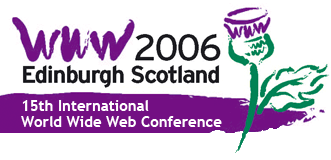

|
|
SecuBat: A Web Vulnerability Scanner
Track: Security, Privacy, and Ethics Slot: 11:00-12:30, Thursday 25th May As the popularity of the web increases and web applications become tools of everyday use, the role of web security has been gaining importance as well. The last years have shown a significant increase in the number of web-based attacks. For example, there has been extensive press coverage of recent security incidences involving the loss of sensitive credit card information belonging to millions of customers. Many web application security vulnerabilities result from generic input validation problems. Examples of such vulnerabilities are SQL injection and Cross-Site Scripting (XSS). Although the majority of web vulnerabilities are easy to understand and to avoid, many web developers are, unfortunately, not security-aware. As a result, there exist many web sites on the Internet that are vulnerable. This paper demonstrates how easy it is for attackers to automatically discover and exploit application-level vulnerabilities in a large number of web applications. To this end, we developed SecuBat, a generic and modular web vulnerability scanner that, similar to a port scanner, automatically analyzes web sites with the aim of finding exploitable SQL injection and XSS vulnerabilities. Using SecuBat, we were able to find many potentially vulnerable web sites. To verify the accuracy of SecuBat, we picked one hundred interesting web sites from the potential victim list for further analysis and confirmed exploitable flaws in the identified web pages. Among our victims were well-known global companies and a finance ministry. Of course, we notified the administrators of vulnerable sites about potential security problems. More than fifty responded to request additional information or to report that the security hole was closed. |
Platinum SponsorsSponsor of The CIO Dinner |
 |